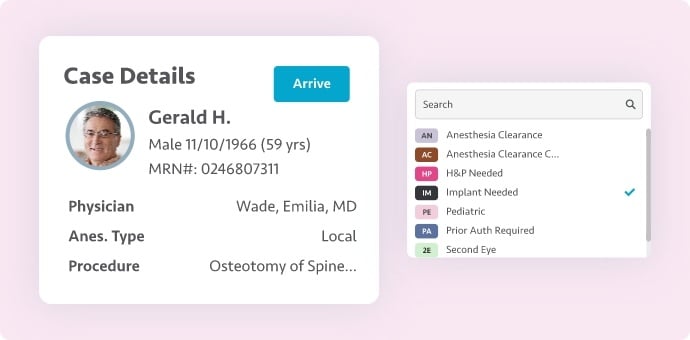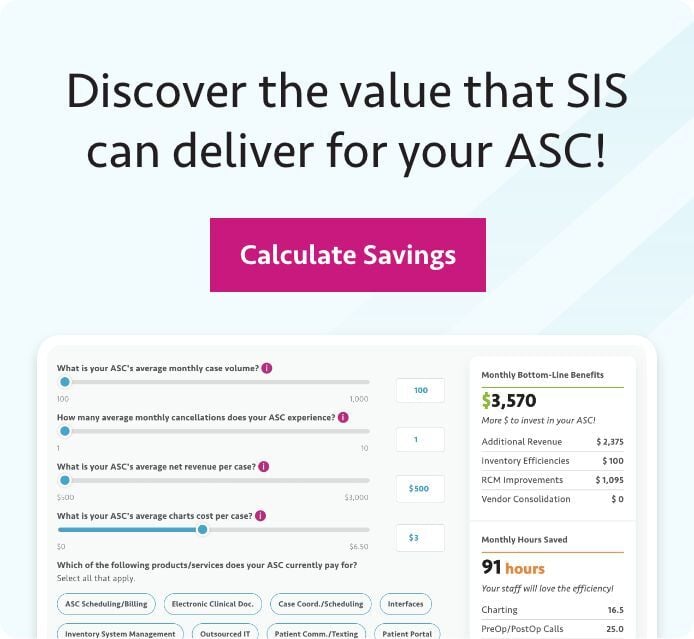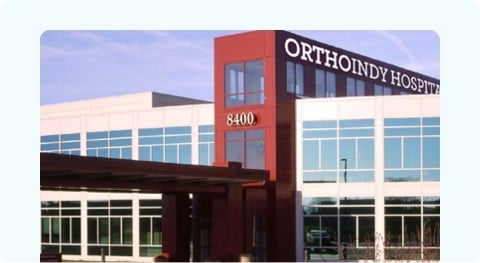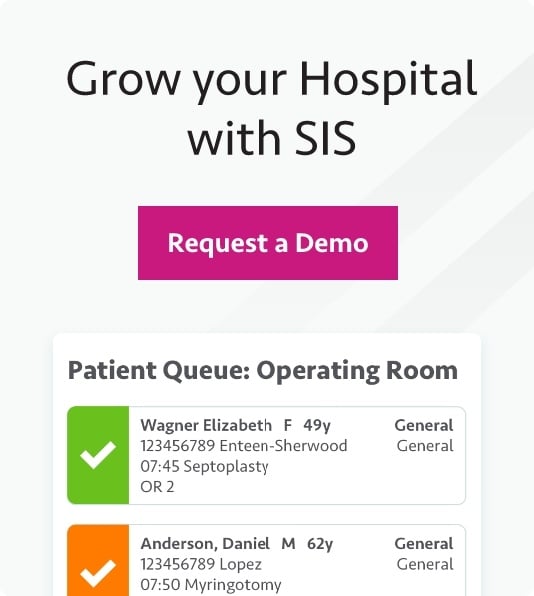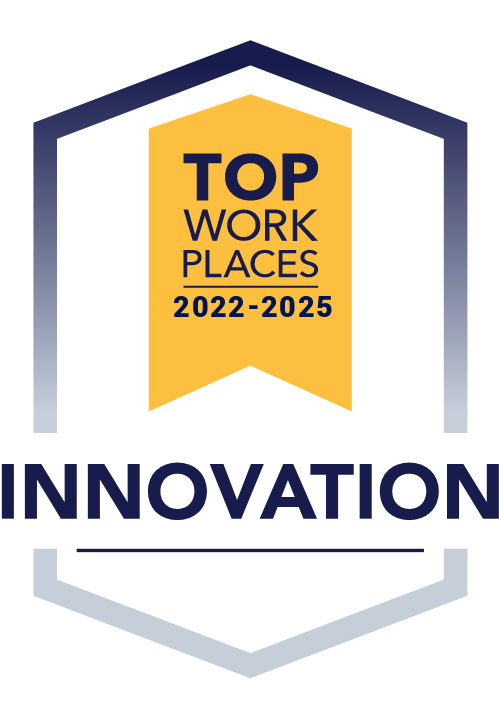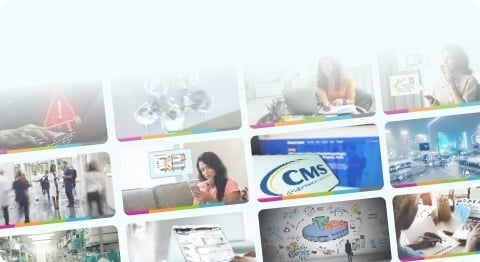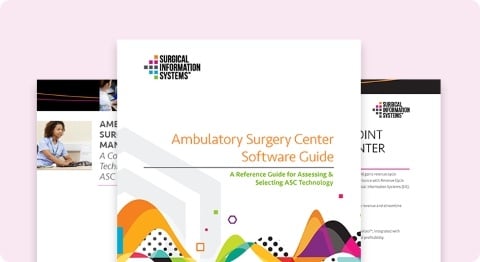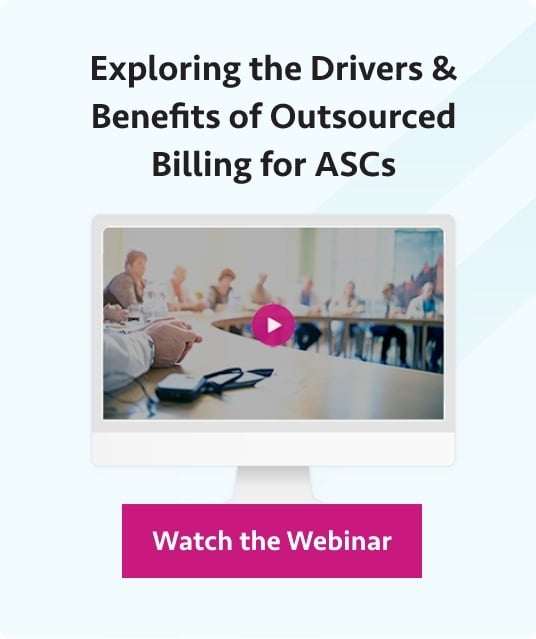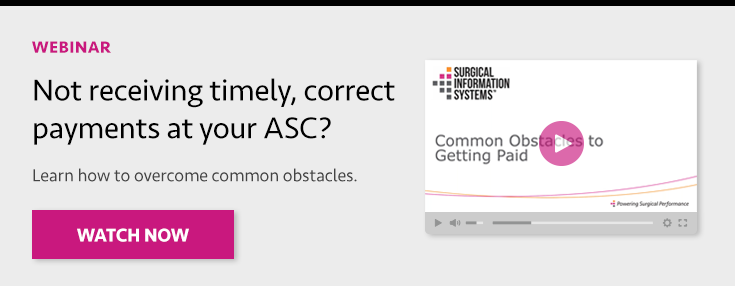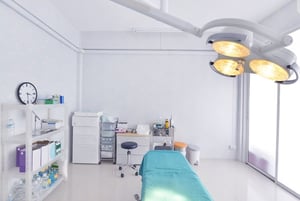 Following a recent webinar presentation on “Common Obstacles to Getting Paid in an ASC,” Jho Outlaw, senior vice president of Revenue Cycle Services for SIS, and Jessica Nelson, director of Revenue Cycle Services for SIS, were asked six questions by participants. Here are those questions, along with Outlaw's and Nelson's responses, summarized for readability.
Following a recent webinar presentation on “Common Obstacles to Getting Paid in an ASC,” Jho Outlaw, senior vice president of Revenue Cycle Services for SIS, and Jessica Nelson, director of Revenue Cycle Services for SIS, were asked six questions by participants. Here are those questions, along with Outlaw's and Nelson's responses, summarized for readability.
Q: I have a two-part question concerning obtaining pre-certification: What do we do if a payer does not give out names or authorization numbers on pre-certification? What do we do for pre-certification for a case added late in the afternoon for surgery the next day?
A: Unfortunately, we do see payers with a policy of not giving out names, with some of them not even providing first names. The first thing we have our staff do is challenge when that happens by saying something along the lines of, "I need some reference that I have spoken with you today and about what you told me." Oftentimes, that is enough for the payer representative to give us information we can refer to.
The simple answer is to not allow them to say, "We can't do that." It sometimes feels like insurers are trying to be as vague as possible, but if you press for specific information so you have something to refer to if the case is denied, there's a good chance you can get it.
As for your add-on case question, if you get an add-on at 3:00 p.m. or later for a case the next day, someone on your staff must serve as the point person who will take that and run with it, treating the case as top priority over everything else. This person would make the call to the insurance company's pre-authorization department to secure the authorization number.
When physicians schedule cases late, patients need to be alerted that you are going to verify their benefits. If patients have a coinsurance and deductible, talk to them before service is rendered. Try to do so on the day the case is added or no later than the following morning.
If add-ons become more than 10% of your volume, that is problematic. Organize add-ons by physician and practice and see if there's anything you can do to help curb that behavior or at least secure an extra day. Bring data to those physicians with high add-on frequency, showing that many of their cases are added the day before and determine if that is necessary. Such a conversation may be all that is required to reduce the number of add-on cases.
Q: What do you recommend for dealing with surgeons who do not dictate timely?
A: This is a challenge in almost all ASCs. The answer is, again, going to come back to data. Get all your physician data so that you can show physician A is dictating within an average of two days, physician B within an average of three days and physician C rarely completes dictation earlier than two weeks, which is likely causing you to chase this slow surgeon around. Share this data with your medical director and/or lead physician. Quite often, the ability to show that comparison and identify which physicians are doing a good job and which are not is enough to spark change.
Another way is to invest in technology, which more ASCs are doing every day. There are new developments in dictation and documentation of the operative note to make it easier for physicians to complete their responsibilities in a timely — i.e., fast — manner. The key is to get them to dictate before they leave the building. You can only do that if your process in place for them to do so is simple and straightforward.
Q: Concerning scheduled versus performed procedures, we bring these denials to our physicians and they disagree that they were the cause, asking for proof that what they scheduled was wrong. How should we handle this?
A: This is where enlisting your coders can help. They can really help with that communication with your surgeons by pulling any supporting documentation that would help justify the reason for the denial, specifically why the CPT code must be documented with its description in the operative note.
Remember: Most physicians are not coding experts. Some perceive they are, but when they are not, be cordial and respectful. Work to schedule a phone call or face-to-face meeting with the coder and the physician. They can usually get to a good place where they're both talking about the issues and focusing on remedies.
Q: How would you advise we track trending concerning clinical documentation discrepancies?
A: There are few ways. Some of them involve more manual processes, such as using spreadsheets to maintain a list of cases and asking either your schedulers or coders to document trends they are identifying. Unfortunately, this can be time- and labor-intensive.
Another, and more efficient, way is to invest in technology that provides an electronic and streamlined means for tracking. For example, there's a solution we refer to as a "request for information" tool where you can categorize the types of queries being sent back to a surgeon. If you can set a status or category that helps you pull together the data when you want to run a report, that can certainly help with tracking efforts.
Q: I don't have time to read all the information that comes from our payers, like network bulletins. Is there a summary somewhere for this information?
A: That's something that we could really use as an industry, but unfortunately it doesn't exist at this time. We recommend assigning someone on your team who likes to read and interpret guidelines and understands the language to review payer and coding bulletins and provide a monthly summary of what is relevant to your ASC. That's likely to be a more efficient and effective way for sharing information than trying to get everyone to read every bulletin.
Q: What should we do if we don't currently have any implant carve-outs in our contracts?
A: Be ready to renegotiate. Renegotiating contracts isn't easy, but it's vital to an ASC's success. Unfortunately, many ASCs have not made it a priority to renegotiate contracts. There's always some other responsibility that takes on greater urgency, but this sets bad precedence.
Make it a priority to look at your contracts, look at the cost of cases with implants, determine their case-rate or line-item reimbursement, and determine out how much you're losing because implants are not covered. In some situations, you might be surprised that your case-rate and CPT line-item payments are more than enough to cover the implant cost.
But when you find that you're losing money on a case because of the implant expense, share this data with payers. It can be an effective way to get contract renegotiations started.




